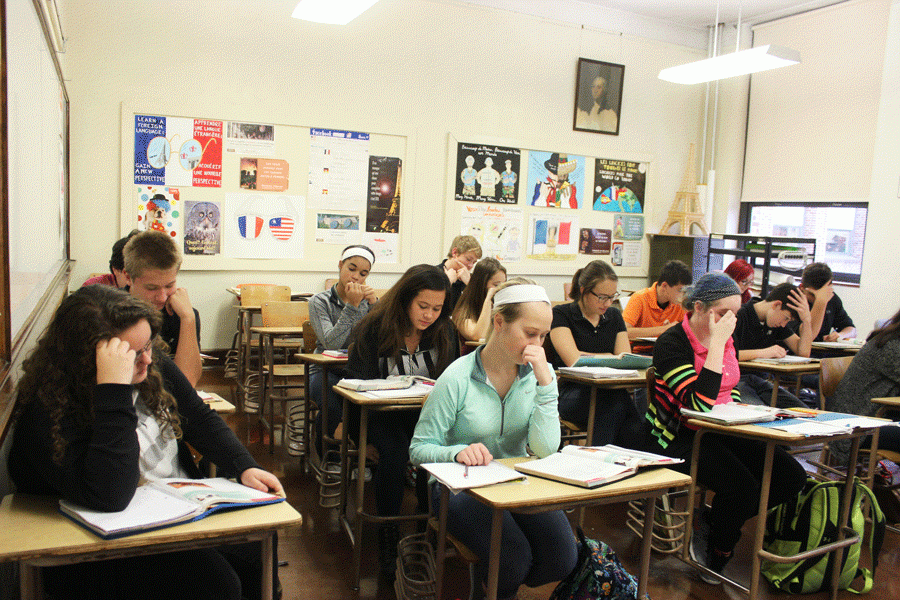Homework effectiveness debate continues
In every single classroom in the high school, there is at least one student who did not complete all of his homework the previous night. It is not uncommon to see students fervently flipping through notebooks and textbooks during homeroom and classes, attempting to finish homework or studying last-minute for a test.
Many students think it is unrealistic for teachers to assume that they can go from their after-school activities, work until after the sun has set, come home and complete the piles of homework assigned, and still get the recommended amount of sleep for a teenager, which is eight to nine hours.
There have been many studies done that indicate less homework is better for the well-being of students. Upon immediately reading this statement, people tend to segregate into opposing groups of teachers and students. That is one of the major problems with similar studies that have to do with the amount of homework students are given: there are some benefits to having less homework but also to having more homework.
According to eduguide.org, when the results from 50 state and national studies were analyzed, 43 indicated that students who did more homework had better achievement scores, and high school students, on average, improved by 25 percent on their exams when given homework.
It may seem shocking to students that having more homework can be beneficial, but according to eduguide.org and other sources, it is. Although right now students feel tired and grumpy because they stayed up late doing homework, they will be more prepared for important things like the Keystones, SAT, ACT and placement tests in college. More homework allows teachers to do the extra five or 10 chapters that they can’t always do because they run out of time in the school year.
Perspective on this topic varies as much in the school as it does in the outside world. According to the Center for Public Education, the School Library Journal reported that students receive higher grades with less outside preparation. The Washington Post reported that the increase in the amount of student homework has increased arguments against it. According to the Washington Post, a new study found that a heavy homework load negatively impacts the lives of high school students in upper middle-class communities, resulting in excess stress, physical problems and little to no time for leisure.
“I think there needs to be a balance between the amount of homework and the amount of sleep a student gets every day. The low number of benefits received by carrying textbooks and losing sleep is not worth the education that we’re getting. Adding extracurriculars to the stress of homework and tests results in the depression and anxiety of many students. Teachers need to realize this,” junior Jessica Angelichio said.
Teachers are aware of the stress students are under when there are pages of homework to do from multiple classes. They also try to take into account the after-school activities students are encouraged to be involved in, but teachers have a set curriculum they must follow.
“Students shouldn’t necessarily have more homework. My goal is to make students learn independently naturally,” Mrs. Katie Koneschusky, biology teacher, said. “Everything that I do is to make students more independent. When you graduate, if you can’t learn new things on your own, you’ll be stuck when you turn 18.”
This is an ongoing debate that has roots stretching back to the 1900s. H. Hagan was the first American researcher to study the effect homework has on students in 1927. Unfortunately, the results of his study are unknown. The argument that began then still continues today. Which side is right?



